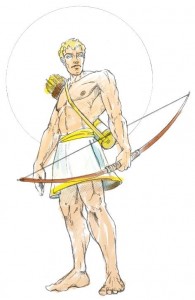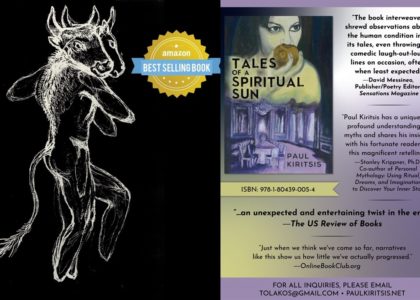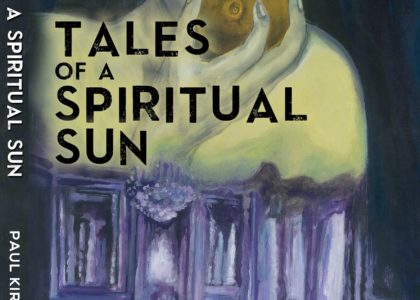
Apollo or Phoebus Apollo, as some like to call him, was the Olympian god of the arts, but especially light, music and poetry (Phoebus denotes the condition of “shining” or “brilliant”). He is the progeny of the mighty Zeus and Leto, a daughter of the Titans, and was allegedly born on the Aegean island of Delos. It appears that Apollo was revered throughout the whole of Greece, particularly at Delphi and other oracular sites where he was worshipped for his predisposition to bestow powers of precognition upon mortals. It was believed that the Delphic Pythia, the most reputed of all the classical oracular priestesses, was able to accurately channel her prophetic visions from aloft a three-legged tripod because the soul of the god had possessed her. In fact, when the Pythia gave her predictions in iambic pentameters her voice would deepen, as if the god were using her body as a medium. There is no shortage of mythological discourse vindicating him as a master of prophecy either. According to legend, Phoebus Apollo became enamoured of Cassandra, the daughter of King Priam and Queen Hecabe of Troy. He bestowed her with the precognitive talent of prophecy, among other things. But her unwillingness to reciprocate his affection incurred the god’s wrath, who cursed her repeatedly. From that moment on her predictions always met with disbelief or ridicule.
Apollo was endowed with a plethora of epithets, two of which were “Delian” and “Pythian”. The latter of the two is etymologically linked to the title of the Delphic seer, as well as the name of a serpent that thrived in the caves and forests of Parnassus. Various classical sources seem to recall Apollo’s act of slaying the serpent with his arrows to avenge the unrelenting anguish it caused his mother whilst she was pregnant, hence the epithet. Apollo took many lovers, both men and women. One of them, Hyacinthus, met with a lamentable fate, explicitly because the West wind Zephyr grew jealous of his fidelity to Apollo. One beautiful morning, while the two lovers were out exchanging throws of the discus, Zephyr manoeuvred Apollo’s discus in such a way as to strike and kill Hyacinthus. Apollo grieved for the boy, and immortalised him by transmuting some of his blood into the flower of the same name. In Homer’s Iliad, Apollo is the patron and defender of the ill-fated Troy. The bow and quiver, the laurel wreath, the quality of truth, the crow or raven, and the dolphin were all sacred to him.









